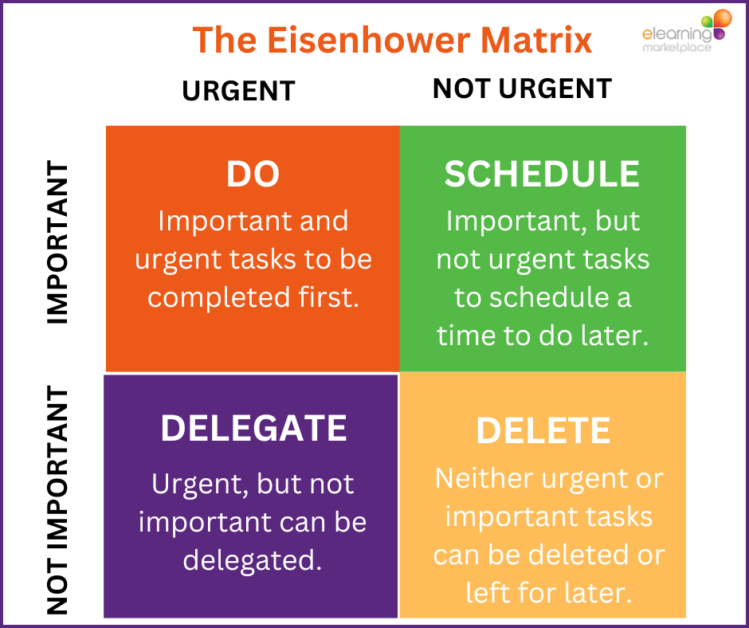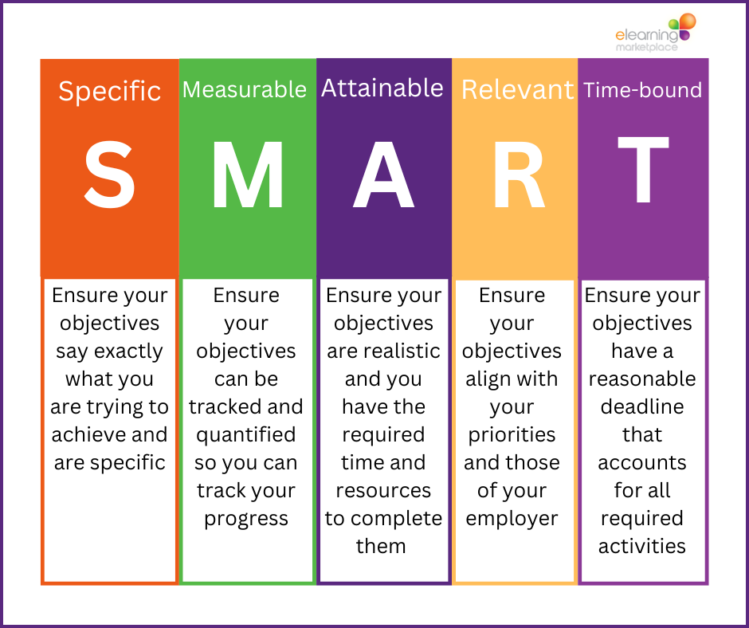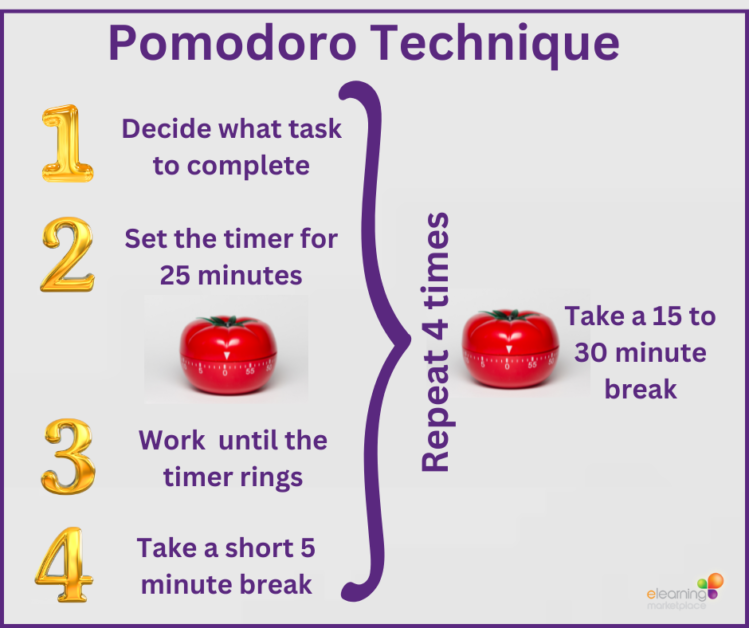
Managing your time effectively when you’re at work is essential for managing your stress levels, improving your work-life balance and quality of work, and maintaining productivity. Here are our top tips for managing your time better in the workplace:
1. Prioritise your tasks using the Eisenhower Matrix – never heard of the Eisenhower Matrix? Well you’re not alone. The Eisenhower Matrix categorises tasks into four quadrants: urgent and important, important but not urgent, urgent but not important, and neither. You should firstly focus on tasks that are both urgent and important, then move on to those that are important but not urgent. This method will help prevent you from spending too much time on low-priority tasks while still meeting critical deadlines.

2. Set clear, achievable goals – set yourself daily, weekly, and long-term goals to stay on track. Break down big projects into smaller, manageable tasks to avoid feeling overwhelmed. Use SMART objectives (Specific, Measurable, Achievable, Relevant, Time-bound) to make your goals clearer and more attainable.

3. Plan your day the night before and use time-blocking techniques – End each day by creating a to-do list for the following day. Outline your top priorities and what you hope to accomplish. Dedicate specific blocks of time for certain tasks. For example, set aside time for responding to emails, project work and meetings. These small steps can help you start your day with a clear purpose and a well-defined action plan.
4. Limit distractions – Identify common distractions, for example social media and notifications on your devices and chatty colleagues, and take steps to reduce them. Turn off non-essential notifications and wear noise-canceling headphones when it’s important you don’t have interruptions, as this can reduce the noise around you and indicate to colleagues that you’re busy.
5. Learn to say “NO” – If you’re overwhelmed with tasks, it’s okay to say “no” or “not right now” when asked to take on additional work. Alternatively, you could suggest a later time when you’ll be more available. Prioritising quality over quantity can enhance productivity and will be better for you and your employer.
6. Batch similar tasks together – Group similar tasks, such as responding to emails, filing reports, or making phone calls, together and complete them in one go. Batching tasks reduces the time lost switching between tasks and helps maintain focus on a specific type of work.
7. Set boundaries for meetings – Meetings can be a major drain on time, so set clear agendas and timescales for meetings and encourage your colleagues to do the same. Politely decline meeting attendance if you’re not essential to the discussions that are planned.
8. Plan for unexpected interruptions – There are always unexpected tasks that come up during a day or week, so to ensure that these don’t derail your plans, allow buffer time between tasks and don’t schedule back-to-back activities just in case. This provides you with some flexibility for unplanned or unforeseen tasks.
9. Use technology to stay organised – Software such as task management tools and online calendars can help you to keep track of tasks and your time. They can also help to remind you of your planned schedule e.g. project deadlines, meetings or calls. Stress can cause you to forget things or be late with tasks or deadlines, which then causes additional stress, so stay organised with the help of technology.
10. Schedule breaks and time for physical activity and try the Pomodoro Technique – Take short breaks to recharge, stretch, or go for a quick walk. Physical activity boosts mental clarity and productivity, so make it a priority to step away from your desk periodically. Try the Pomodoro Technique method or working for 25 minutes and then take a 5-minute break. After completing four cycles, take a longer 15-30 minute break. This method promotes focused work sessions and scheduled breaks, preventing burnout and boosting productivity.

Time management takes practice, so I suggest try implementing a few of the above strategies at a time and find out what works for you. In time I’m sure you will be working more efficiently, have less stress and feel in control of your day, which will in turn give you more job satisfaction.
Author: Carolyn Lewis
eLearning Marketplace, a Core Learning company, offers clients immediate access to online training with over 4,500 course titles from over 60 of the best course publishers and delivers a quality service to clients in over 50 countries.
We offer a single source for all your organisational eLearning needs, making it easy to find, evaluate, and purchase off-the-shelf eLearning courses to use on our, or your own, LMS. Our consultative approach ensures we offer you the best advice and solution to meet your unique requirements, either as a professionally curated, tightly targeted content solution, or a subscription to an ‘all the learning you can consume’ approach.
Our flexible purchasing options, ranging from pay-as-you-go to multi-publisher annual user licenses, ensure the cost-effective procurement for any scope and scale of requirements.
Not all courses are on the website so if you can’t find what you are looking for please do get in touch: 0844 854 9218







 UK: 0844 854 9218 | International: +44 (0)1488 580017
UK: 0844 854 9218 | International: +44 (0)1488 580017








